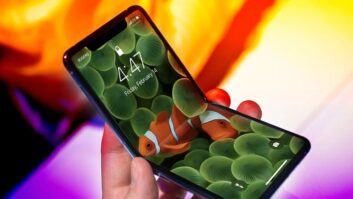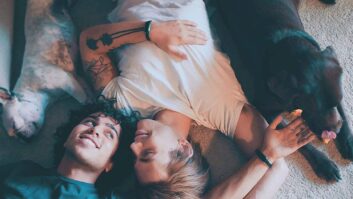Two technology companies promise to make music CDs unrippable, but whether the technologies they employ will go into widespread use in the United States is far from clear.
In the United States on May 15, Music City Records of Nashville delivered to music stores a Charley Pride CD encoded with copy-protection software developed by startup SunComm of Phoenix. In Eastern Europe, Sony Music released two trial discs encoded with software developed by Israel’s Midbar Tech, which said none of the 10,000 discs released in the trial in the Czech Republic and Slovakia encountered playback problems in audio CD players.
Both companies also say that major music companies plan to market test their technologies in the United States.
The two companies also say they’re developing technologies that will prevent audio CD-recorders from making digital-to-digital copies of CDs encoded with their software, although copying would be permitted after a disc’s content undergoes D/A and A/D conversion.
Tel Aviv-based Midbar used its antiripping technologies in the Eastern Europe market test with Sony. CDs protected by one of the technologies, Cactus Data Shield (CDS) 100, can’t be played or copied from a PC’s CD-ROM drive but can be played on an audio CD player.
CDs protected by Midbar’s second technology, CDS 200, feature two types of music files. One is protected Redbook audio that can’t be played or copied through a PC but can be played on an audio CD player. The second type consists of encrypted, compressed music that can be played (but not ripped) on a CD-ROM drive through a secure music player launched from the CD itself.
“Entry into the U.S. market is dependent on the decisions and priorities of the record companies,” said a spokeswoman, but “market tests have been scheduled with one of the big five music companies in the U.S.” Timing hasn’t been announced.
On top of that, the spokeswoman said Midbar in coming weeks will announce a “contract” with on of the big five to license the technology for use “beyond a market test.”
Meantime, Midbar continues to develop a technology that blocks or controls the digital SP/DIF outputs of a CD player, she said. Availability hasn’t been announced, but it can be combined on a disc with either 100 or 200 protection.
Before the successful market test in the Czech Republic and Slovakia in December, Midbar market-tested its technology on a BMG disc in Germany, where the disc had to be recalled because 3 percent of purchasers complained the disc wouldn’t play on their CD player, Midbar said. The problem was resolved in the second test, a spokeswoman said.
“I think there are two main points to the German experience,” she said. First, “there was a 97 percent success rate in the first-ever trial of its kind.” Second, Midbar “was able to immediately correct initial snags.”
In the United States, the first unrippable CD, the Charley Pride album, features copy-protection technology from SunComm to “defeat PC-based ripping,” said SunComm chairman John Aquilino. The technology also defeats recording from audio CD-recorders built around a CD-ROM drive. “CD-ROM drives are used in some low-end CD-recorders because ROM drives are cheap,” he pointed out.
A second version of the SunComm technology is under development and would shut down the digital outputs of a CD player to prevent direct digital-to-digital dubbing. Analog outputs would be unaffected, making it possible to use a CD-recorder to record a disc only after a round of D/A and A/D conversion.
SunComm is still testing version two but expects to release it in Q2 to music companies for their own tests.
The company is also developing two other copy-protection technologies that could be added to a CD to control PC ripping. One would prevent ripping but would let users download the disc’s songs from a web site in compressed, copy-protected Windows Media Audio form.
The other technology would let users make a copy-protected unrippable CD whose contents could be in Redbook audio, MP3 or WMA formats.













